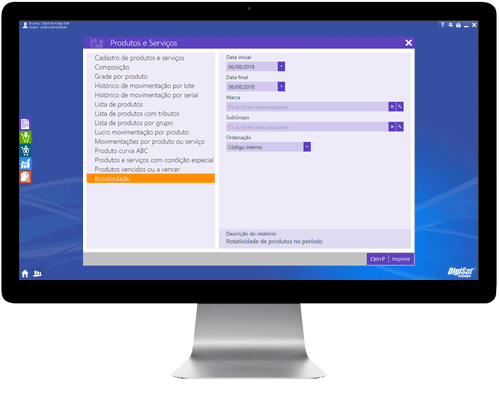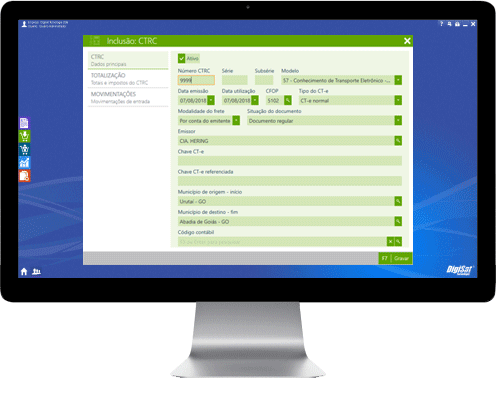DIGISAT G6
Deixe tudo mais prático e facilite a sua vida com a nossa tecnologia. Implantando o Sistema Gerencial G6 você controlará e gerenciará todos os departamentos de sua empresa em um único sistema. Uma verdadeira ferramenta administrativa. É um sistema desenvolvido com garantia de bom desempenho e satisfação com real ganho de produtividade. Voltado para o uso em comércios em geral, gerenciando a área de retaguarda, frente de caixa e serviços. Atende também: postos de combustíveis, farmácias e restaurantes. Conte com o Sistema Gerencial G6 e garanta diferencial competitivo para sua empresa.
RECURSOS DO SISTEMA

CADASTROS SIMPLIFICADOS
ENTRADA DE PRODUTO
- Pedido de compra com envio por e-mail
- Lançamento automatizado da NF-e de entrada, com importação do XML, cadastro do fornecedor e produtos automáticos
- Fator de conversão
- Montagem de composição
- Manifestação do Destinatário com possibilidade de download do arquivo XML
- Entrada de produtos por lote, nº de série e grade
- NF-e de entrada
- NF-e de importação
- Nota de devolução
- Importação do XML para nota de compra
- Registro de CT-e (Transporte)
- Nota de produtor rural
- Nota de devolução


MOVIMENTAÇÃO DE SAÍDA
CONTROLE FINANCEIRO
- Emissão de duplicatas, carnês, boletos e nota promissória
- Contas a pagar e receber
- Renegociação e cobranças
- Envio de remessa dos boletos para o banco e leitura do arquivo de retorno
- Formas de pagamento
- Comissão de vendedores e técnicos
- Cadastro de Planos de Contas e Centros de Custo
- Cadastro de contas bancárias
- Transferência de valores entre contas
- Movimentações e saldo das contas


NFC-E, S@T E CUPOM FISCAL
PRÉ-VENDA E DAV
- Emissão de DAV (Pedido de Venda)
- Emissão de Pré-Venda


RECURSOS AUXILIARES
ORDEM DE SERVIÇO


MÓDULO RESTAURANTE
RESTAURANTE MOBILE


